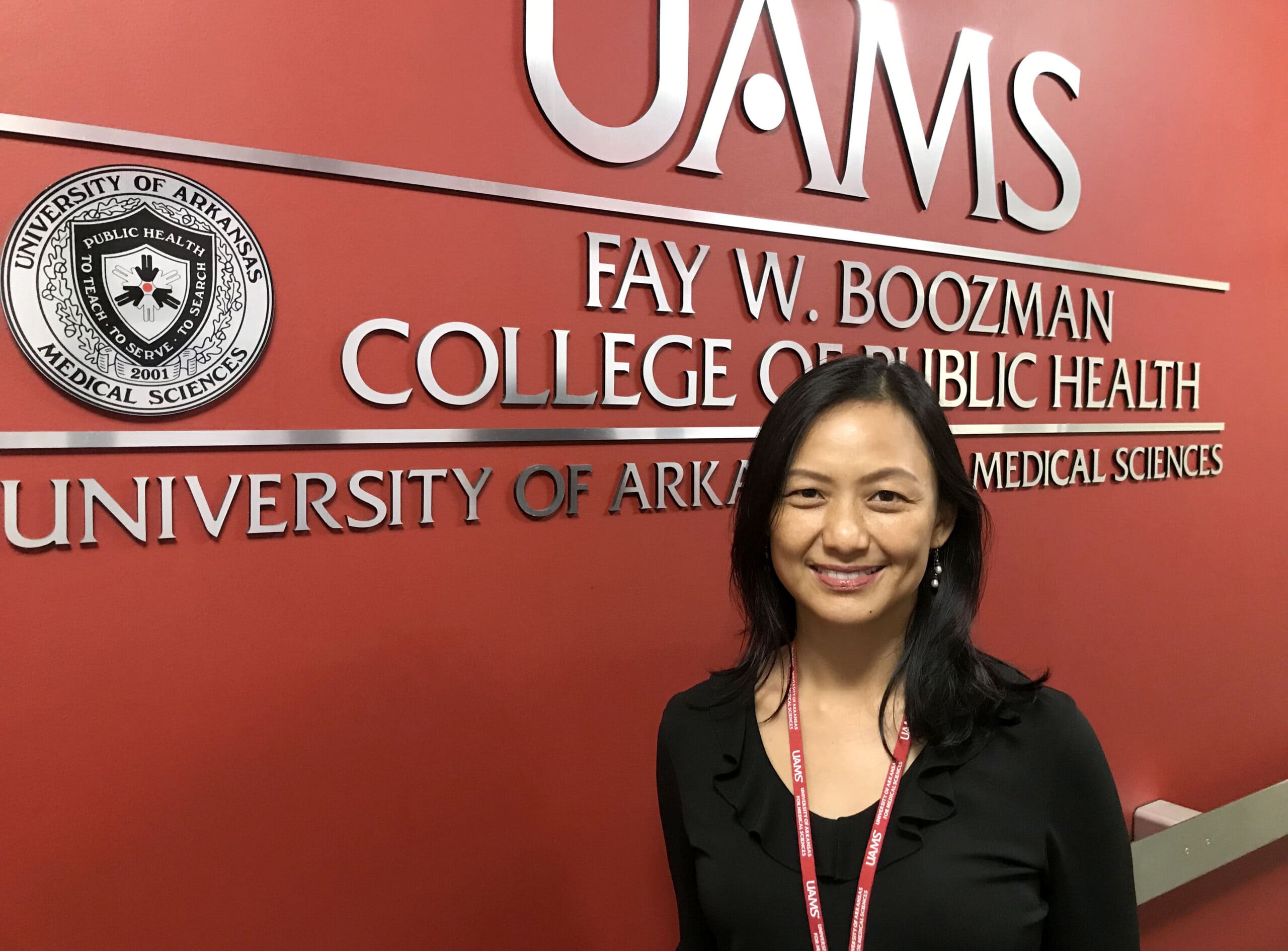Program Plays Key Role in Studying Factors That Affect Development, Treatment, Survivorship of Breast Cancer in Arkansas’ Rural Communities
| The University of Arkansas for Medical Sciences (UAMS) Fay W. Boozman College of Public Health is helping to spearhead a program that specializes in studying breast cancer — and overall health — of women who reside in Arkansas, especially rural areas.
The Arkansas Rural Community Health (ARCH) project was established in 2007. Formerly named Spit for the Cure, the program is supported by the college and the UAMS Winthrop P. Rockefeller Cancer Institute. Once exclusively dedicated to breast cancer research, the program has expanded to study the health of rural communities and the unique challenges these communities face to maintain good health.
About 26,000 Arkansas women ages 18 to 95, from all 75 counties of the state, have participated in the program. Each participant has given a saliva sample and completed surveys about breast cancer risks for the project.
Ping-Chin Hsu, Ph.D., an assistant professor in the college and a member of the UAMS Cancer Prevention and Population Science program, is the principal investigator of ARCH. The project’s goal is not only to gain more insight about breast cancer and the risks but also to look into the environmental exposures especially communities surrounding the farmlands, she said.
“The study shows women that participation in research can be a fairly easy thing to do,” Hsu said. “The research is what will lead to better cancer detection, treatment and survivorship in the future.
“What we’ve discovered thus far is that there are more women in Arkansas that were diagnosed with breast cancer at a young age than other states, and young African American women have the highest death rate from breast cancer compared to other racial/ethnic groups — almost double than that of European Americans. That’s why we have three substudies in ARCH that have focused specifically on African American women.”
Participants completing a survey about themselves and providing a saliva sample are vital to the research, she said. The answers from the survey and the samples provided are used to study lifestyles, health history and any possible links to breast cancer. The participants’ reproductive history, history of breast cancer screening and family history of breast cancer are also studied.
According to Hsu, families participating in ARCH have done a lot to advance the research.
“We have quite a few family groups who have all participated in this program, including more than 700 mother-daughter pairs,” she said. “That means we can research those genes and exposures across generations. We’re hopeful that we may identify relationships between participants’ environments where they live and their overall health.”
In terms of where a participant resides, the cohort worked with the MammoVan, a mobile mammography unit operated by the UAMS to specifically recruit women from Arkansas’ rural communities.
It’s not uncommon for rural Arkansans who live outside the state’s population hubs in the central and northwest regions to struggle to get the health services they need. In many cases, there aren’t enough health care providers in Arkansas’ rural areas. Driving 30 minutes to an hour to receive care — particularly specialized care — is the norm for some people.
“When it comes to specialist providers, it’s even harder to get access to care because of referrals and traveling to the doctor’s office itself,” Hsu said. “Arkansas is a low-income state. Many people are without health insurance or have limited health insurance coverage. This leads to reduced screening and sometimes a late diagnosis, which can lead to poorer outcomes when it comes to treating breast cancer.”
To combat the aforementioned trends, ARCH encourages women to get mammograms and to monitor their daily health. Team members accomplish that goal mostly through going out in the communities, handing out information and working alongside local nonprofits, ministries and companies. In the process, it helps the team gain an even better understanding of various tendencies.
“By learning about women in Arkansas, we will be better able to understand the health of women in our state and can work toward a healthier Arkansas,” Hsu said. “It also brings awareness of breast cancer and the need for screening. While ARCH doesn’t provide breast cancer screening or individual results from participation in the program, it can help through increasing screening awareness.”
Ultimately, ARCH will help create a statewide data file of breast cancer research, Hsu said, information that will help find better ways to prevent breast cancer — and test for breast cancer — for women in rural areas.
“We may find that women with certain genes may have higher risks for breast cancer and need more screenings or would have potentially better health with different lifestyle habits,” she said. “There are many possibilities when looking at genes and lifestyle combined. We want to improve the lives of Arkansas’ women.”
